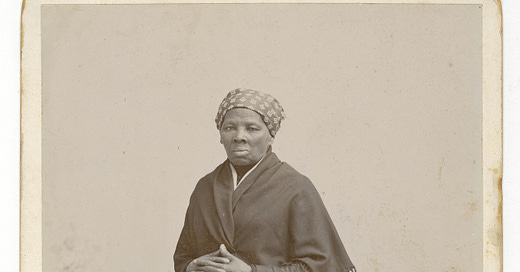It was early summer, 1863. America was deep in the midst of a ferocious Civil War between North and South, but more poignantly, between two visions of what the nation would become—one that preserved slavery, and one that aimed to end it. At this point in the war, the Union Army had suffered heavy losses and many setbacks. Morale ran low, and victory felt distant. Even with the Emancipation Proclamation earlier in the year, liberty remained fragile and for many black Americans in the South, still unattainable.
But momentum was on the verge of shifting. And some of the battles would be driven by people society would least expect.
With rare exceptions, the battlefields of war were for men only in those days. The day of June 2 would include one of those rare exceptions. Standing alongside the men was a small black woman, barely five feet tall, with eyes that glared and a fierce demeanor that made grown men quiver. Those who knew her in the South often called her “Moses.” The world would come to know her as Harriet Tubman.
Before the war, Harriet had been a conductor on the Underground Railroad, ferrying families out of slavery in the South to freedom in the North. She had been doing so for nearly a decade, after she herself escaped around the age of thirty. “I have heard their groans and sighs, and seen their tears, and I would give every drop of blood in my veins to free them,” Harriet wrote.
Harriet did just that. Armed with faith and a revolver, she guided men, women, and children through forests and rivers, past slave catchers and betrayal, across an invisible line that meant everything. Time and again, she carried people through these perilous journeys, succeeding every time. As Harriet said, “I was the conductor of the Underground Railroad for eight years, and I can say what most conductors can't say—I never ran my train off the track and I never lost a passenger.”
Then the war broke out. And sometime in 1862, Harriet joined the Union Army as a nurse to help the cause. But given her knowledge of the land and culture, the Union Army soon asked Harriet to take on another role: spy. She accepted.
Keep reading with a 7-day free trial
Subscribe to Historical Snapshots to keep reading this post and get 7 days of free access to the full post archives.




